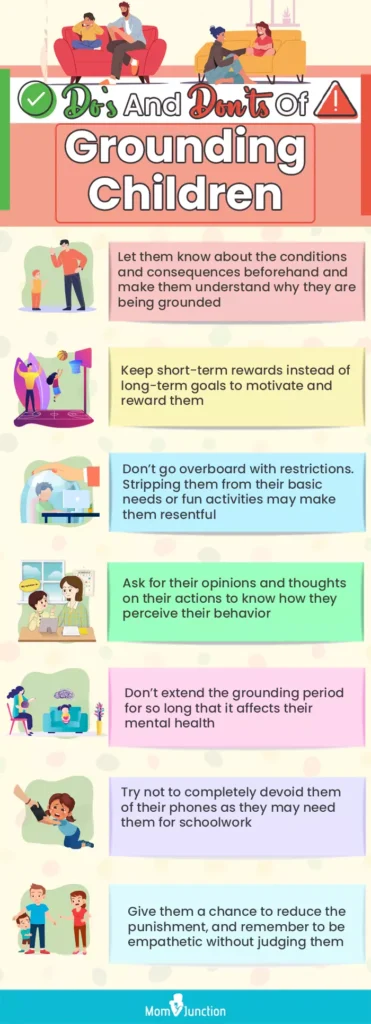The transition to adulthood often signifies a newfound level of independence. However, the concept of discipline doesn’t necessarily vanish upon reaching the age of majority. While less common than in adolescence, grounding adult children remains a practice employed by some parents or guardians as a consequence for certain behaviors. This involves imposing restrictions on activities, social interactions, or access to privileges, aiming to encourage accountability and positive change.
This article delves into the complexities of grounding adult children, exploring the reasons behind this practice, its potential consequences, and the delicate balance between parental authority and an individual’s growing autonomy. We will examine the nuances of disciplinary measures in adulthood, providing insights into when and why grounding might be considered, as well as the broader implications for both parent and child.
Grounding Adult Children
Grounding adult children typically involves restricting their freedom and access to certain privileges for a predetermined period. This can manifest in various ways depending on the individual circumstances and the severity of the transgression. Common examples include:
- Curfew: An adult child might be required to adhere to a stricter curfew, limiting their late-night activities or social engagements.
- Restricted Social Interactions: Contact with certain friends or individuals deemed detrimental to their well-being may be limited or prohibited.
- Loss of Privileges: Access to vehicles, entertainment systems, or other discretionary items might be temporarily revoked.
- Financial Restrictions: A reduction in allowance or a temporary suspension of financial support could be implemented.
It’s important to note that grounding adult children should not involve physical punishment or any form of abuse. The goal is to encourage reflection and positive behavioral change through constructive consequences, fostering a sense of responsibility and accountability.
Reasons for Grounding Adult Children
While less frequent than in adolescence, parents or guardians may choose to ground adult children for various reasons, often stemming from concerns about their well-being, safety, or the impact of their actions on others. Some common justifications include:
- Substance Abuse: Engaging in excessive alcohol consumption or drug use can lead to grounding as a means to address potential health risks and promote recovery.
- Irresponsible Behavior: Actions such as reckless driving, theft, or violence may necessitate grounding to demonstrate the seriousness of their consequences.
- Neglecting Responsibilities: Failure to fulfill financial obligations, academic commitments, or household duties can result in grounding as a way to encourage accountability and self-sufficiency.
- Mental Health Concerns: If an adult child exhibits signs of mental distress or engages in self-harming behaviors, grounding might be implemented temporarily to ensure their safety and well-being.
It’s crucial to remember that grounding should always be a last resort after other interventions have been attempted. Open communication, counseling, and support systems are often more effective in addressing underlying issues than solely relying on disciplinary measures.
Disciplinary Practice After Adulthood
The concept of discipline evolves as individuals transition into adulthood. While parents or guardians may still hold authority over their adult children, the nature of this relationship shifts towards mutual respect and shared responsibility. Grounding an adult child should be approached with sensitivity and consideration for their evolving autonomy.
It’s essential to engage in open and honest conversations about expectations, boundaries, and consequences. Adult children should have a voice in the process, allowing them to understand the rationale behind grounding and contribute to developing solutions. This collaborative approach fosters a sense of ownership and accountability, promoting healthier communication and conflict resolution within the family dynamic.
Consequences of Grounding
Grounding an adult child can have both positive and negative consequences. While it aims to encourage positive behavioral change, it’s crucial to consider its potential impact on their emotional well-being and overall development.
Potential Benefits:
- Increased Accountability: Grounding can serve as a reminder of the importance of responsible behavior and the consequences of actions.
- Opportunity for Reflection: The restricted environment can provide space for introspection and self-evaluation, allowing individuals to identify patterns and make positive changes.
- Improved Communication: Open dialogue surrounding grounding can strengthen family bonds and foster healthier communication patterns.
Potential Drawbacks:
- Emotional Distress: Grounding can lead to feelings of resentment, anger, or isolation, particularly if it is perceived as unfair or overly punitive.
- Damaged Relationships: If not handled sensitively, grounding can strain relationships between parents and adult children, creating further conflict and tension.
- Limited Personal Growth: Excessive reliance on grounding may hinder an individual’s ability to develop independent problem-solving skills and learn from their mistakes.
Parental Authority and Responsibility
The decision to ground an adult child rests with the individual responsible for their care, typically parents or guardians. However, this authority should be exercised responsibly and ethically, considering the unique circumstances of each situation.
Parents must balance their role as caregivers with their adult children’s growing autonomy. Open communication, clear expectations, and a willingness to listen are crucial in navigating this delicate balance. It’s important to remember that grounding should not be used as a tool for control or punishment but rather as a constructive means of promoting accountability, growth, and positive change.
Conclusion
Grounding adult children remains a complex and often controversial practice. While it can serve as a disciplinary measure in certain situations, its effectiveness depends on various factors, including the nature of the transgression, the individual’s maturity level, and the overall family dynamic.
Parents or guardians must carefully consider the potential consequences of grounding, both positive and negative, ensuring that it is implemented responsibly and ethically. Open communication, mutual respect, and a focus on fostering accountability and personal growth are essential in navigating this challenging aspect of adult-child relationships.



